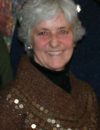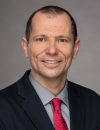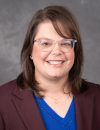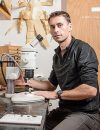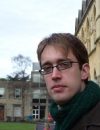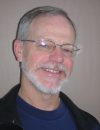UW In The News
-
Why Your Voice Sounds Older As You Age
These changes happen to about 1 in 5 of us as we age, according to Lisa Vinney, a speech-language pathologist and faculty member at the University of Wisconsin-Madison. “Age-related voice changes happen to everyone to some degree,” she said. “But those changes can occur more rapidly or be more pronounced thanks to genetic, lifestyle and health factors.”
-
Scientists debate adding a Category 6 for mega-hurricanes
In their paper, which was published in the Proceedings of the National Academy of Sciences, Wehner and co-author James P. Kossin of the University of Wisconsin–Madison did not explicitly call for the adoption of a Category 6, primarily because the scale is quickly being supplanted by other measurement tools that more accurately gauge the hazard of a specific storm.
-
Fragments of Bird Flu Virus Discovered in Milk
Finding viral fragments in milk from the commercial supply chain is not ideal, but the genetic material poses little risk to consumers who drink milk, said David O’Connor, a virologist at the University of Wisconsin-Madison.
-
As bird flu spreads in cows, fractured U.S. response has echoes of early covid
“Lots of farms aren’t raising their hands to be tested because they don’t want to be known as having an infected herd,” said Keith Poulsen, director of the veterinary diagnostic lab at the University of Wisconsin-Madison.
-
U.S. births fell last year, marking an end to the late pandemic rebound, experts say
But “the 2023 numbers seem to indicate that bump is over and we’re back to the trends we were in before,” said Nicholas Mark, a University of Wisconsin researcher who studies how social policy and other factors influence health and fertility.
-
Do implicit bias trainings on race improve health care? Not yet – but incorporating the latest science can help hospitals treat all patients equitably
ssociate professor of Population Health Sciences and Obstetrics and Gynecology, UW-Madison.
-
Inside Wildlife Services, USDA’s program that kills wildlife to protect the meat and dairy industries
Adrian Treves, an environmental science professor at the University of Wisconsin-Madison, said the origins of today’s rampant predator killing can be found in America’s early European settlers, who brought with them the mentality that wolves were “superpredators,” posing a dangerous threat to humans. “We’ve been fed this story that the eradication of wolves was necessary for livestock production,” he said.
-
A Passover Pleasure: Matzo Pizza
Ancient matzo wasn’t as crackerlike as it is today. It was likely similar to a pita, said Jordan Rosenblum, a religious studies professor at the University of Wisconsin-Madison. “There’s a 2,000-year history of putting stuff on matzo and eating it,” he said.
-
A Dentist Found a Jawbone in a Floor Tile
It’s “clearly hominin,” John Hawks, a paleoanthropologist at the University of Wisconsin at Madison who also blogged about the discovery, told me in an email.
-
America’s child care crisis is holding back moms without college degrees
Women like Slemp challenge the image of the stay-at-home mom as an affluent woman with a high-earning partner, said Jessica Calarco, a sociologist at the University of Wisconsin-Madison. “The stay-at-home moms in this country are disproportionately mothers who’ve been pushed out of the workforce because they don’t make enough to make it work financially to pay for child care,” Calarco said.
-
Dentist finds ancient human jawbone embedded in his parents’ tile floor
John Hawks, a paleoanthropologist at the University of Wisconsin at Madison, titled his blog post on the matter: “How many bathrooms have Neanderthals in the tile?”
-
How Ugandan Tobacco Farmers Inadvertently Spread Bat-Borne Viruses
“This is the butterfly effect of infectious disease ecology,” says senior study author Tony Goldberg, a wildlife epidemiologist at the University of Wisconsin–Madison. “Far-flung events like demand for tobacco can have crazy, unintended consequences for disease emergence that follow pathways that we rarely see and can’t predict.”
-
Florida bans local heat rules for outdoor workers, baffling experts
Extreme heat kills more people in the United States each year than all forms of extreme weather combined, said Richard Keller, professor and chair of the medical history and bioethics department at the University of Wisconsin School of Medicine and Public Health. In a changing climate not only are the days of extreme heat becoming “more frequent and more intense, they’re also longer lasting,” Keller said.
-
Babies born this year face a $500,000 climate bill
“The optimist in me knows there are a lot of moving parts,” University of Wisconsin-Madison professor of energy analysis and policy Tracey Holloway tells Consumer Reports. “It could end up being easier to be sustainable, easier to be resilient, than we thought, and maybe in some ways that will offset the costs that they project.”
-
A Botched FAFSA Rollout Leaves Students Worried
“It’s just this perfect storm of technical issues and procedural delays that have just rolled downhill right from the Department of Education to institutions to students and families,” says Taylor Odle, an assistant professor of educational policy studies at the University of Wisconsin-Madison.
-
Cicadas incoming: Billions to emerge in double-brood invasion
“There aren’t many places in the country where two very different broods overlap,” said Daniel Young, a professor of entomology at the University of Wisconsin-Madison and director of the school’s insect research collection.
-
Toward A Universal Covid Vaccine
This dynamic underscores the need for a universal vaccine, a potential game-changer that could neutralize all forms of SARS-CoV-2 and even other related coronaviruses. A recent study by Peter Halfmann and colleagues from the University of Wisconsin offers promising indications that this universal vaccine is on the horizon.
-
Why experts are studying how to improve tablets for parrot use
It was not surprising that the birds could learn to follow a circle on a screen because of their higher capacity for intelligence, said Kurt Sladky, a clinical professor of zoological medicine at the University of Wisconsin-Madison’s School of Veterinary Medicine. Sladky was not involved in the new study.
-
Marjorie Taylor Greene Applauds Russia for ‘Protecting Christianity’
Mikhail Troitskiy, professor of practice at the University of Wisconsin-Madison, disagreed with Greene’s characterization. “There is simply no reason for the Ukrainian government to persecute Christians because it has much more important concerns during the war with Russia,” he told Newsweek. “The constitution of Ukraine does not mention Christianity or any other religion as official, and Ukraine is a secular state—but there is no reason for its government to crack down on the Christian faith.
-
Someday, Earth Will Have a Final Total Solar Eclipse
There’s good evidence that the moon retreated more slowly in the past as well. Margriet Lantink, a geologist at the University of Wisconsin-Madison, has analyzed sedimentary rocks in Australia that record climatic changes caused by fluctuations in the Earth-moon distance. “I read the fingerprints of those astronomical variations,” Dr. Lantink said.
-
How Often Do You Take Breaks From Your Phone?
If you want to peacefully coexist with technology, you need to get a handle on those impulses. Start by noticing when you have an urge to lift your phone or open social media on your browser window, said Richard J. Davidson, the founder and director of the Center for Healthy Minds at the University of Wisconsin-Madison.
-
Online child safety laws could help or hurt – 2 pediatricians explain what’s likely to work and what isn’t
Column by Megan Moreno, professor of Peditatrics, University of Wisconsin–Madison
-
Winter’s Last Gasp
Column by Jack Williams, professor of geography at the University of Wisconsin–Madison.
-
Microsoft’s quantum computer may be the most reliable yet
“A logical error rate 800 times lower than the error rate of the physical qubits is a very significant advance in the field that takes us another step closer to fault-tolerant quantum computing,” says Mark Saffman at the University of Wisconsin who was not involved with the experiment.
-
The FAFSA Fiasco Is a Really Big Deal
Nick Hillman, an education-policy professor at the University of Wisconsin at Madison, said that the “hollowing out” of the department forced it to rely on third-party contractors to complete its technical fixes.
-
What Would A Solar Eclipse Have Looked Like to Neanderthals? Here’s What We Know
“It’s almost impossible to imagine that ancient hominins would have ignored an eclipse, or not noticed,” University of Wisconsin anthropologist John Hawks tells Inverse. What’s harder to guess — and more interesting to speculate about — is what the Neanderthals would have thought and felt when darkness suddenly swallowed the day.
-
Deepfakes raise alarm about AI in elections
What might have taken a studio budget and a production team to produce a few years ago can now be put together by everyday users with just a few clicks, said Barry Burden, a political science professor and director of the Elections Research Center at the University of Wisconsin-Madison. And with the ubiquity of social media platforms, fabricated content can be widely spread, with few formal checks in place.
-
Trump-backed GOP leaders call for embrace of early and mail-in voting even as former president continues to cast doubt
“The [Republican] Party does not have a single message about all of this, in contrast to the Democrats, who – at least in 2020 – had a really unified message,” said Barry Burden, the director of the Elections Research Center at the University of Wisconsin-Madison. “And they also developed the infrastructure to figure out how to navigate the 50 state laws and determine who has already voted early and how to reach out to people who have requested absentee ballots but not returned them. That’s very much a state-by-state process.”
-
5 Things You Should Do First Thing In The Morning To Be Happier All Day
“You can start with a simple appreciation practice,” Cortland Dahl, a research scientist at the University of Wisconsin-Madison’s Center for Healthy Minds, previously told HuffPost. Just bring a friend or loved one into your mind, then consciously focusing on the things you really cherish about them.
-
Why Do Colors Change during a Solar Eclipse?
For other animals, an eclipse-induced Purkinje effect may be even more intense, says Freya Mowat, an assistant professor of ophthalmology at the University of Wisconsin–Madison School of Veterinary Medicine. Birds have a fourth cone that lets them see ultraviolet light. It’s difficult to say exactly how the sudden light change during a solar eclipse would affect avian vision, Mowat, says but it’s possible that the shades of purple would be extra vivid and disorienting
- Page 1 of 134
- Older stories
Featured Experts
Shilagh Mirgain: Mental health benefits of spring cleaning
Ever notice how good you feel after doing a bit of spring cleaning? Turns out decluttering your home can help… More
Connie Flanagan: Student protests
Student protests about Gaza are intensifying across the country. Constance Flanagan, an expert on youth political engagement and civic participation,… More
Mark Eppli: Interest rates and home prices
Mark Eppli, director of the James A. Graaskamp Center for Real Estate, is available for interviews on the continued rise… More
Martin Ganco: FTC announces rule banning noncompetes
The Federal Trade Commission on Tuesday voted to ban for-profit US employers from making employees sign agreements with noncompete clauses.… More
Noelle LoConte: Cancer cases among younger people on the rise
The demographics of cancer patients are shifting from older individuals to middle-aged people, according to the American Cancer Society. While adults… More
John Gross: Trump trial and contempt of court law
John Gross, clinical associate professor, is available for interviews about how trial judge Juan Merchan can penalize breaches of New York's criminal… More
Kenneth Mayer: Trump hush-money trial
Kenneth Mayer, an expert on the American presidency and a professor of political science, is available for interviews about former… More
Patrick (PJ) Liesch: Cicada emergence
PJ Liesch is director of the UW–Madison Insect Diagnostic Lab. Liesch can discuss the emergence of periodical cicadas, cicada biology, the timing… More
William Brockliss: Cicadas in the art of the ancient world
William Brockliss is a classics professor in the College of Letters and Science. Brockless says the music of cicadas is embedded… More
Daniel Young: Cicada biology
Daniel Young is a professor of entomology and director of the UW–Madison Insect Research Collection. Young is an expert on insect… More


